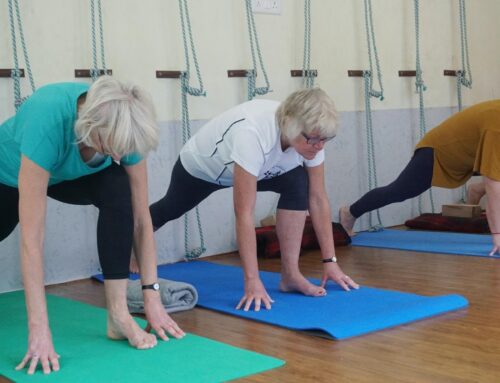Introduction
Stress has become an important issue in modern day living. All of us will most likely experience a certain level of stress at some point. The Australian Psychological Society (APS) conducted a survey in 2015 which found 35% of Australians reported having a significant level of distress in their lives. 72% of Australians felt that stress impacted their physical health and 64% reported it negatively affected their mental health. But very few reported seeking professional help. Clearly, managing stress has become a necessary skill we need to learn. So, let’s begin by finding out what we actually mean when we say we’re stressed.
What is Stress?
In its simplest form stress is “a condition or feeling experienced when a person perceives that demands exceed the personal and social resources the individual is able to mobilize.” (Lazarus, R. & Folkman, S. 1984)
The National Institute of Mental Health (NIMH) recognises two types of stress – acute stress and chronic stress. Acute stress is more common and usually occurs due to events that are more short term and have a solution or endpoint. Chronic stress is experienced when the stressors continue over a longer period of time causing ill-health and disease, including respiratory, blood pressure & heart problems, increased risk of stroke & type 2 diabetes as well as mental health conditions like depression and anxiety.
No matter what type of stress you’re experiencing it is important to know what to do about.When you have the skills to identify and manage the stress that you may experience, your overall wellbeing will benefit because you’ll be able to work more productively, enjoy more positive relationships, and feel good about yourself.
Causes of Stress
It’s important to note that something that causes stress for one person may not affect another person at all. We all have different levels of tolerance for stressful events. However, here are some commonly recognised causes including
Work Factors:
- Being unhappy in your job
- Having a heavy workload or too much responsibility
- Working long hours too frequently
Life Factors:
- The death of a loved one
- Divorce
- Loss of a job
- Increase in financial obligations
Psychological Factors:
- Fear and/or uncertainty
- Individual attitudes and perceptions
- Unrealistic expectations
- Change
Social Factors:
- Having poor access to services such as medical care, green spaces or transport
- Living through a stressful community-wide, national or global event, like the coronavirus pandemic
- Experiencing stigma or discrimination, including racism, homophobia, biphobia or transphobia
How We Respond to Stress
Our body is well equipped to manage stress. Chemical and hormonal changes are quickly triggered to manage acute stress. A well-known response is the ‘Flight, Fight or Freeze” response. This happens to keep us safe. Our body undergoes physiological changes that make it easier to fight or escape & hide.
The “General Adaptation Syndrome” (GAS )is another theory of how we respond to stress. It was first described by Hans Selye in 1936. He proposed that people experience stress in three separate stages.
- The Alarm Phase: we react to the stressor by equipping our body with the capacity to deal with it.
- The Resistance Phase: we adapt to, and cope with, the stressor. Our body can’t keep up resistance indefinitely, so our physical and emotional resources are gradually depleted.
- The Exhaustion Phase: eventually we become “worn down” by stress and cannot function normally.
Strategies to Manage Stress
As you can see stress can become a serious threat to your wellbeing if not managed successfully. A comprehensive approach to managing any type of stress you may encounter includes action, emotion and adaptation based strategies.
Action-Based Strategies include the practical things you can do such as firstly identifying your stress, then taking control of your daily and weekly schedule as well as managing your relationships. Examples may include:
- Identify what is causing your stress. The Holmes & Rahe Stress Scale may be a useful place to start. You can find it here https://www.mindtools.com/avn893g/the-holmes-and-rahe-stress-scale
- Start a ‘stress diary’. Record the things that make you stressed throughout your week. Consider also making a note about why the event made you feel stressed and your feelings at the time.
Emotion-Based Strategies help ease the symptoms of stress caused by our individual or subjective perception of stress. We may find it hard to remain calm because we overthink or catastrophise an event by allowing negative or false thoughts to influence our behaviour. The following strategies may help eliminate the negativity and allow a more objective view to reduce stress.
- Challenge negative thinking with positive self-talk. If practiced often enough, the effect of the repetition lays down new neural pathways in the brain to override the negativity.
- Use cognitive restructuring to see a stressful event or interaction from a different perspective and flush out any fallacious or biased information, or any assumptions, by challenging the evidence for their existence.
- Use stress reduction exercises via technology. There are numerous guided visualisations, images, stories and sound effects
Adaptation-Based Strategies are helpful when we face a stressful situation that we have little or no control over. Rather than wasting our energy worrying and fretting, we can look after ourselves by reducing any negative impact that the stress may have on our mind or body by adapting to the stressful situation or circumstances. Here are some adaptation techniques that protect your wellbeing.
- Become creative and think outside the box. Reflect upon the stressful situation and list ways you could approach it differently. Could you learn a new skill? Change your role? Take on different responsibilities? This approach will help you see stress from a different perspective and lessen its negative impact.
- Draw upon your resilience. Step up, be courageous and assertive. These are all skills that can be learnt with enough commitment and practice. You can enlist the support of a trusted friend or colleague to get you started on the journey of building a robust approach that withstands all kinds of stress.
- Make responsible choices about your physical health. Ensure you get enough restful sleep each night, eat nutritious foods and exercise regularly. Good physical health contributes to your capacity to tolerate stress.
Conclusion
Although stress will continue to hold a presence at times throughout our lives, we all have the capacity to triumphantly overcome any negative impact it may cause. If we are aware of our stressors, and can identify the effects they may potentially have on us, we are well on our way to enjoying a healthy lifestyle whereby we can experience both exceptional physical and mental wellbeing.
Remember we are all unique. So, apply what works for you based on your individual circumstances.
Learn more about Valion Mental Health Coaching Programs.
Crisis Support
If you are in an emergency, or at immediate risk of harm to yourself or others, please contact emergency services on 000.
Lifeline 13 11 14
Suicide Call Back Service 1300 659 467



